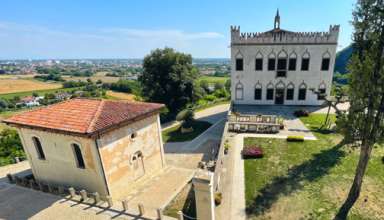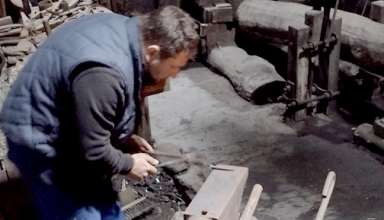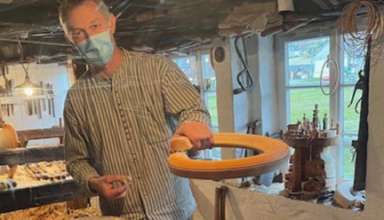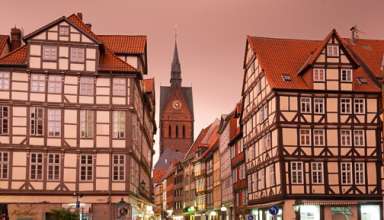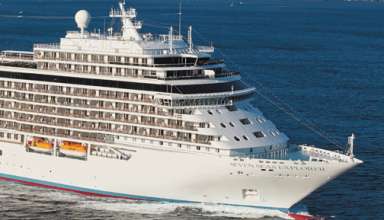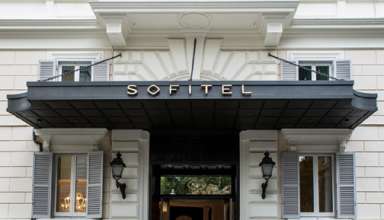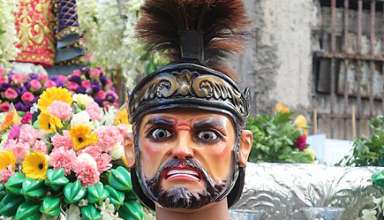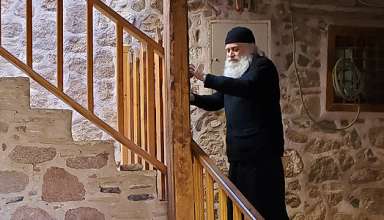Embraced by the verdant Euganean Hills, an archipelago of conical-shaped peaks dating back some 35-million years, the thermal baths of Abano Terme, just 54 km southwest of Venice, form the oldest and largest benessere (wellness) center in Europe and, arguably, the world. Specializing in fango-balneotherapy, La Città Termale (The Thermal City) has an ancient, mythical past.
World Travel
Tempting Time: Hotel L’Orologio Roma
One thing you'll never have to ask, if you are ensconced-and I might add, you will be ensconced very happily and very pleasantly-in Hotel L'Orologio Roma, is what time is it? The hotel's name is a dead give-away: L'Orologio, or the clock.
The Ancient Forge: Herreria de Compludo
There are many sights to see on the road to Santiago, Spain, better known to pilgrims as St. James Way, or simply the Camino. Perhaps one of the most unusual I've experienced is Herreria de Compludo - the Forge of Compludo. Older than the pilgrimage itself, which became popular during the Middle Ages, the forge dates back to the seventh century.
The Splendors of Sensational Saxony
I raise my baton to alert the orchestra that I am ready to conduct. In my best imposture of Gustavo Dudamel, I cue the woodwinds, then coax in the stringed instruments, and finally, I direct the brass-perching on the precipice and at the ready-to chime in. I punctuate my air-piercing baton-swirling, with a jab toward the timpani to elicit an emphatic beat. Smug and sly, I think that Felix Mendelssohn's Italian Symphony never sounded so expressive. As if following my intensity, the surrounding chamber becomes enveloped in a saturated vermillion glow that melts into an intense violet, as I command the orchestra…and we sprint together to the end of the first movement.
Three Things About Hanover, Germany
There are numerous activities in Hanover that locals enjoy, including surfing on the Leine River right in the heart of the Old Town district. A surfable wave has been created there by installing a hydraulically controllable system, allowing water sports enthusiasts to engage in 'rapid surfing.'
Regent Seven Seas Cruises
It's hard to imagine that there is feverish activity below decks, while you are more or less inert, abovedeck, sunning languorously poolside, with a frothy, umbrella-adorned beverage in hand. Such is "the life" on deck 11, on an at-sea day on Regent Seven Seas Cruise Line's stunningly appointed Explorer, with its exquisite décor—punctuated by its extensive, on-board art collection, valued at some $6 million.
Escape to the Glorious Sofitel Rome Villa Borghese
I woke from a deep, coma-like sleep. Not entirely sure where I was…the celestial-looking ceiling above me seemed to ooze Heaven. Nimbus poufs of feathery clouds loomed languidly over my head…hints of statuary, or Cupids, or angelic cherubs, sketched in sorbet colors,floated gracefully on the canopy above my head. Jet lag being what it is, it took me a few minutes to realize I was in a different kind of Heaven on Earth. I was in the Sofitel Rome Villa Borghese, floating on its signature-branded Sofitel MyBed, my body a limp whirl of protoplasm atop a bowl of weightless cotton candy!
The Last Place in the World Where I Would EVER Want to Visit or Revisit Again
The next T-Boy writers' poll is devoted to THE LAST PLACE in the world where you would NEVER want to visit, or revisit. The instructions were simple: it could be a nation, state, region or province, a city or town, or a place; like that fisherman's bar in Valparaiso, where I was once thrown out of for expressing my distaste of the Chilean dictator, Augusto José Ramón Pinochet Ugarte.
Holy Week in the Philippines
Different towns have their own versions of the religious festival but Pampanga (north of Manila) is the most popular one because it boasts of actual nailings on the cross. It's not as bad as you think. The nails are quite small and they are thoroughly washed in alcohol before they are hammered into strategic areas of their hands to do the least damage. And their weight is supported on the cross by ropes on their hands and foot platforms. Of course, the pain is still real.
Egypt, Part III: Saint Catherine’s Monastery
After three hours of driving or so, we arrive at our destination, Saint Catherine's Monastery, officially the Sacred Autonomous Royal Monastery of Saint Catherine of the Holy and God-Trodden Mount Sinai. The monastery was sanctioned by the orders of the Byzantine emperor Justinian I, between 548-565 BCE. But,in the year 330 ACE, the Empress Helena, the mother of Roman Emperor Constantine the Great, built a church with massive granite blocks, believed to be on the site where God spoke to Moses through the burning bush.
